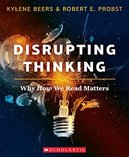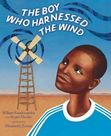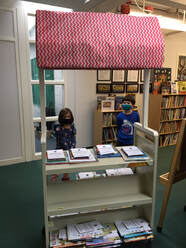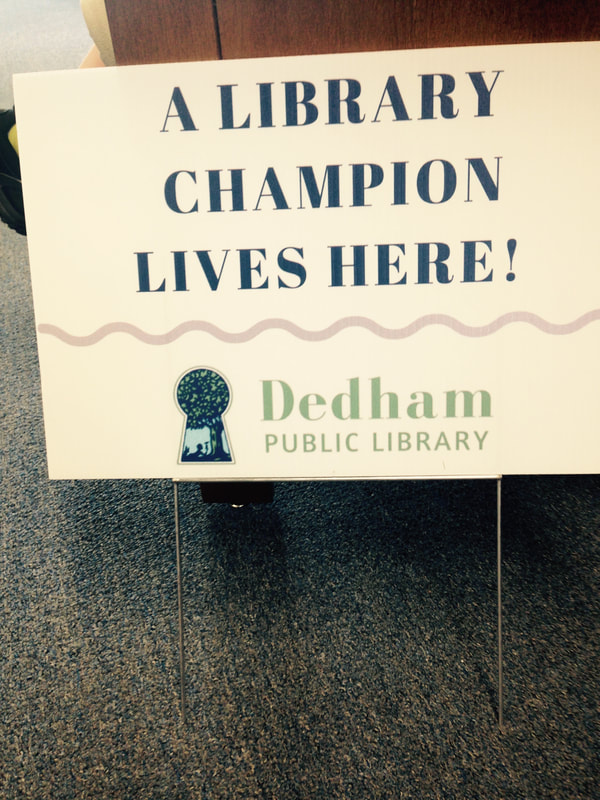|
Courtney Ahearn is the librarian at the Annie L. Sargent Elementary School in North Andover, MA Like many Americans during the height of the pandemic, my husband and I decided to try our hand at raising chickens. Over the last three years our flock has grown (due to a phenomenon known as “chicken math”) and we now have over thirty feathered friends in our backyard. We have developed a reputation in our school district as being “chicken people”. My husband, a high school science teacher, has hatched chickens in his classroom over the past two years with great success.
0 Comments
Courtney Ahearn is the librarian at the Annie L. Sargent Elementary School in North Andover, MA
Working in a school library, especially one that serves students who are just learning to navigate the wide world of literature independently, can be difficult all on its own. Throw in the current national climate regarding book challenges and bans, and you’ve got a minefield of issues and potential problems.
The ALA reported in their 2021 State of America’s Libraries Special Report that 44% of the 729 challenges (affecting over 1,000 individual titles) were reported from school libraries (American Library Association, p9). At least a few of those challenges were against books housed in elementary school collections, such as Drama by Raina Telgemeier or Melissa by Alex Gino (Friedman, 2023). While Massachusetts has not seen the kind of widespread bans that other states have enacted, it is important that elementary librarians across our state be aware of what is at stake— and, more importantly, what can be done. Francesca Mellin is the Head Librarian at The Pike School in Andover Wordless picture books are the ultimate example of “show, don’t tell.” Artists using this format have fewer constraints (no blocks of text to plan around) but also the greater responsibility of creating characters and advancing plot solely through visual means.
Francesca Mellin is the Head Librarian at The Pike School in Andover.
If flexibility is the order of the day, then humor is the “secret sauce” for success in these times. In my reading life, I find myself turning to lighthearted fare to counter all that is weighty elsewhere; hence, the focus on humorous picture books for this column.
Francesca Mellin is the Head Librarian at The Pike School in Andover In these turbulent times, I find myself looking for silver linings and “small wins” wherever I can. I am encouraged by the increasing number of Native folks serving in Congress and the recent commitment by a professional football team to change an offensive team name. The number of books published by Native creators is on the rise, and recognition of problematic narratives is generating much-needed conversation. Just in time for Indigenous Peoples’ Day on October 12, here is a selection of recent picture books that reflect a wide array of Native perspectives, identities, and activism.
Francesca Mellin is the Head Librarian at The Pike School in Andover. If you’re like me, you may find yourself glued to your laptop on a certain Monday morning in January, cheering gleefully (while others in the library wonder what in the world you’re watching)! The Youth Media Awards, announced at ALA’s annual Midwinter meeting, are undoubtedly a major event for book lovers. The Newbery, Caldecott, and Coretta Scott King Awards have traditionally been at the forefront of media coverage... and can sometimes outshine the other awards. ALA itself has been gradually giving increased recognition to awards given by its affiliates. In the past two years, announcements of literature awards given by the American Indian Library Association, Asian Pacific American Library Association, and the Association of Jewish Libraries have been made at the Youth Media Award breakfast, welcome news indeed for those of us promoting multicultural and inclusive literature in our libraries.
The picture book honorees for 2020 represent a wide array of experiences and themes, expressed through stunning art coupled with engaging text. Let’s take a closer look at some of my favorites. Jennifer Mason Stott is the Library Teacher at King Open School in Cambridge, and a recipient of a 2019 MA Super Librarian Award . Students come to school with a wide range of experience, some joyful, some traumatic. In 2017-2018, I took a course on trauma-informed practice and thought about the role of the library. While librarians are not therapists, we can provide experiences that help students feel cared for and important. After seeing my first grade students’ response to the book Extra Yarn, I turned an author-illustrator study of Mac Barnett and Jon Klassen into an art-making collaborative. We would yarn-bomb the recess yard! The result: the King Open Art Fence.
Ms. Samantha Silag is the Library Teacher at Manchester Memorial Elementary School. Remember the good old days…back in February? At that time, I wrote an article for the Winter Forum about how important it is for parents to know us Library Teachers by name. At the time, I had no idea just how true, almost prophetic even, my message in that piece would prove to be just a few weeks later when MA schools closed due to the Coronavirus pandemic. Now, as we are in the thick of remote teaching/distance learning (call it what you will), I find that the ability to reach out to K-5 parents and make it stick to their overloaded radar is critical to keep the “school library” present and participatory during these overwhelming times. And, to keep our school community connected and comforted by the familiar.
Barbara Gogan is the School Librarian at Peter Noyes Elementary in Sudbury, and
a recipient of a 2019 MA Super Librarian Award.
Although there are people who think an elementary library is just about reading The Very Hungry Caterpillar, we know how much more there is to it. For instance, when I have requested or shared LGBTQIA+ resources on LM_NET or the MSLA listserv, I receive many requests for a HIT or get asked whether I ever experience pushback from the school or parents. It appears that many elementary school librarians are turning their attention to this underserved and underrepresented area of our communities and I hope sharing my experiences may help others.
I want to preface this by saying I am a straight cis white woman and am by no means an expert. I am doing my best to learn and am grateful to so many people who identify as LGBTQIA+ for their generosity in helping others support students. Ms. Samantha Silag is the Library Teacher at Manchester Memorial Elementary School. Over the years, I have formed the habit of referring to my K-5 students as my kids and referring to their parents and guardians as my parents. My relationship with my parents has in turn become a critical piece of the puzzle that, in my mind, completes the surprisingly complex jigsaw that is the Library Teacher role within the school community.
There are many pieces to the jigsaw that make a successful library program and many of them are behind the scenes (collection development, policy development, standards review and curriculum writing, for example.) These responsibilities are critical to a strong library program but to the general public they sound like a snoozefest and make it easy for the Library Teacher role to blend into the background, often misunderstood or overlooked. Gone are the days when being a school librarian consisted of sitting behind the circ desk, reading glasses permanently affixed just below the eyes, with a finger at the lips shushing patrons. Today’s Library Teacher (Teacher Librarian, Media Specialist, Learning Commons Manager, call it what you want!) has curriculum development responsibilities, direct instruction responsibilities, often plays a tech support role, is an ambassador of books, multiculturalism, community interaction...the list is long. But how is anyone to know this if we don’t COMMUNICATE?! In order for the school library program to be valued and supported within the school community, the Library Teacher must be a known entity. He or she is the face of the library program. Without a dynamic, progressive, motivated Library Teacher, there is no dynamic, progressive, motivating Library program. So do we need to toot our own horn? Sure, at times we do, but there is more to building relationships than just basic advocacy. Wendy Garland is the librarian at Avery Elementary School in Dedham, MA What I love about my work
I chose this profession because I knew it would keep me on my toes. I thrive on learning new things and serving many roles I am a librarian, teacher, counselor, technology specialist, reader, curriculum developer, and professional development deliverer. There is great beauty in the creativity and diversity the position offers. However, for all of those same reasons I can sometimes find myself swimming in a sea of all of the above and finding myself underwater. There isn’t enough time to be who I want to be for ALL of my students, teachers, and parents. There just aren’t enough hours. I want to try new initiatives, develop collaborations with teachers, try out that new tool I read about, make a dent in my “to be read” pile, catch up with my professional reading, write a blog post, and learn from my Twitter PLN. Kelly Depin is the head librarian at Derby Academy in Hingham, MA Imagine yourself reading a picture book to students. If you’re a good sideways or upside down reader, you can keep the pictures in view the whole time. You may use different voices for each character, using inflection the way a chef uses a knife. A little library instruction may start or end the session : ‘What does the author do?’, ‘The illustrator?’. You might even draw attention to how the cover does this or that. But have you ever discussed the gutters or layout? How about the typography or endpapers? Megan Dowd Lambert, author of Reading Picture Books with Children : How to Shake up Storytime and Get Kids Talking about What They See does exactly that. In association with the Eric Carle Museum of Picture Book Art, Lambert has developed the Whole Book Approach, a dialogic method used to read with students, not to students.
Sheila Packard is the Library Teacher at Ward Elementary in Newton and a recipient of a 2019 MA Super Librarian Award. “The only constant in life is change.” This saying, attributed to Greek philosopher Heraclitus, might be repeated by many school librarians as they grapple with unasked-for changes in the size of their libraries, prompted by shifts in enrollment or budgets or other circumstances. Often they will hear that flexibility is the key to dealing successfully with this change, but is it really? Over the course of 13 years, one of the libraries I work in has gone from small to large to smaller again, and with each change, even downsizing, has become a better version of itself. While flexibility helped me cope, I became convinced that there was something more that influenced these results. Here’s the story.
Wendy Garland is the Librarian at Avery Elementary School in Dedham, MA. I want to grow curious and creative thinkers who feel valued and empowered to share their ideas and opinions. I envision our library as a launch pad for ideas, surrounded by books and ideas on the shelves, walls, tables, and even windows. I want students to see their own thinking and I want other students to be able to see it. Seeing our own thinking displayed says, “I am valued,” “I am important,” “I am welcome here.” Making our library a welcoming and safe place is on my heart. It has been the overarching goal of my year. Making our learning visible has been a key ingredient to the recipe for “welcome.”
Sarah Bickel is the School Library Media Specialist at Greenlodge Elementary School in Dedham and a recipient of a 2019 MSLA President's Award. After many iterations of school announcements, we have found success (for now)! Greenlodge News is a weekly news video for and about the school created by fifth grade students. Our news reporters spend a week preparing each episode before it airs for the school community and town. In addition to collaborating with peers to interview and write up news reports, produce a video product, and use a green screen, students are more confident and self-reflective because of the experience!
Kelly Depin is the Head Librarian at Derby Academy in Hingham.
When you’ve been around education for any length of time, you become aware that even the education field is not immune from trends. Instead of hemlines or lapel sizes, ours tend to focus on subject matter or techniques. Project Based Learning anyone? STEM? STEAM? Who remembers when we used to teach civics? Guess what - we’re teaching it again. Phonics or whole reading is now phonics AND whole reading despite the factions that fight on. Let’s just hope that open classrooms don’t come back, or did they already in the concept of the learning commons? Lately, social-emotional learning (SEL) seems to be making the rounds. Social-emotional learning is defined by the Collaborative for Academic, Social and Emotional Learning as the “process through which children and adults understand and manage emotions, set and achieve positive goals, feel and show empathy for others, establish and maintain positive relationships, and make responsible decisions" (CASEL). Whether we look at it as ‘one more thing to do’ or a tool for classroom management, the fact is that school librarians have been teaching SEL since we’ve had librarians in school!
Kelly Depin is the Head Librarian at Derby Academy in Hingham.
Wordless books can be a librarian’s secret weapon for having a raucous story time! Students vie to give their interpretations to what happened, what IS happening and what is about to happen in the book. Amidst the controlled chaos, wondrous learning is occuring. Students are comprehending the story by inferring from the picture clues. Predictions of what comes next spout as each one defends their choice by citing evidence from the pages. The why’s and where’s spotlight their oral language skills. All from a book with pictures - and no words. Sounds like they have mastered some of the Common Core Standards for ELA, all while having fun with a story.
Nancy Snow is the librarian at Bancroft Elementary School in Andover and is a recipient of a 2018 Super Librarian Award It is that time of year again. Fall, the beginning of a new school year. You can feel the excitement in the air, but in my library something is missing. Oh, yes. My fabulous fifth grade library assistants have moved on to Middle School and I have a serious lack of help. What to do? It’s time to start recruiting again.
Wendy Garland is the School Librarian at Avery School in Dedham.

Back to school - I have always loved this time of year with it’s fresh starts and dreams of possibility. I loved this time of year as a child and continue to relish the excitement. This is our library’s back-to-school story, where I confronted the challenges of years past, asked hard questions, and framed our year of learning around the concept of “welcoming” all students in and “inviting” them into our space and our books. Do I have big hopes and expectations? Absolutely. Big changes? Not really. This is about the small, subtle ways I am choosing to build a positive library culture and grow learners. I consider this just the beginning of our journey.
The inspiration for change came from two books I read over the summer - one being a powerful picture book, and the other being a dynamic professional book about reading. There is something beautiful about summer reading, soaking in the sun and ideas without the pressure of lesson planning and deadlines looming. I read, wrote and thought about Disrupting Thinking: Why How We Read Matters by Kylene Beers and Robert E. Probst well beyond the time it took me to “read” the book. It planted seeds and I spent much of my summer cultivating them. What surprised me was I “thought” I was reading about reading. What I ended up thinking about was change. Wendy Garland is the Librarian at Avery Elementary School, in Dedham. As librarians many of us find ourselves operating in a vacuum. I am the sole librarian in my building. Our teacher colleagues have each other for support, but my colleagues are across town. Twitter has granted me the opportunity to connect with others, observe what they are doing, ask questions to the larger school librarian community, and grow as a professional. I attribute the growth in my teaching in large part to Twitter and the innumerable individuals that have influenced my journey.
Char Sidell retired from her elementary school library in Needham, but continues to work as a librarian at the Codman Academy Public Charter School in Dorcherster. Editor’s Note: It is with great sadness we share that Char Sidell passed away suddenly on February 24th. Even in retirement, she continued to contribute to our community with this column. Over the years, she served the MSLA in countless capacities including membership on the Executive Board and Conference Committee. Her definition of retirement also included volunteering three days a week as a librarian at Codman Academy. Please enjoy her final column and comply with Char’s request to share your ideas in the comments below. I am looking forward to spending this winter break in Penang, Malaysia, where they will be celebrating Chinese New Year, beginning February 16 through March 2. In Malaysia and other countries outside of China, this holiday is also called the Spring Festival, or Lunar New Year. The holiday is based on the lunar calendar and its beginning is different every year, unlike our New Year celebration on January 1, which is based on the Gregorian calendar. I have a few favorite picture books that I feel have withstood the test of time and are still relevant today. Many of the picture books on Chinese New Year in this country deal with stories around family preparations, celebrations, red bao envelopes, and the lion/dragon dance, all stories that are comfortable and understandable to the Chinese children of Chinese backgrounds that live here. I have also found some new books that I feel will add to your teaching experience that I would like to share with you. My goal is that each of you will find at least one new picture book to share with your students! Wendy Garland is the Librarian at Avery Elementary School, in Dedham, MA, and received a 2017 Super Librarian Award Recipe for a Lunch Bunch
(Wherein I change the culture of the library, gain support from my principal and read a book or two) Below follows my recipe for Lunch Bunch. It is a basic, easily sustainable program that does not break any new ground. What it does do is reflect the changing culture of our library and the growing support for our program. Lunch Bunch continues to be the most highly-attended library program and children vie for “their turn” for a literary lunch. Lunch Bunch Ingredients: 1 theme 2 read alouds 30 minute lunch 20ish students Pinch of laughter Splash of relaxation Handful of Principal support Well-stocked bins of condiments and silverware Optional (but a great help): Student helpers that stock the condiments & silverware Wipes for cleaning surfaces (donated by parents) Vacuum for under-the-table messes Prep time: 5-10 minutes for book selection Active time: 30 minutes Serves up to 25 Wendy Garland is the Librarian at Avery Elementary School, in Dedham, MA, and received a 2017 Super Librarian Award My district’s Summer Reading took on a new, refreshing feel this year. The Reading Specialists and Librarians were given the freedom to develop our own Summer Reading program and we abandoned reading levels, book lists and logs, and reading minutes. Instead, we partnered with the Public Library and gave our students permission to read far and wide.
At my school we planned and launched the program at an assembly at the end of the school year which was hosted by the Student Council. One third grader shared with us some of her writing, why it was important to her and the story behind it. Next, members of the Public Library staff came to explain what Summer Reading looked like. They shared with us how to "sign up" for Summer Reading. Char Sidell is the K-4 Librarian at Codman Academy in Dorcheste.r . I am sure many of you are familiar with books with surprise endings. In this column, I’d like to try to introduce you to a few more - new books, and some older favorites of mine that may not be so familiar. I have used as one of my criteria for selection over my many years of experience presenting surprise-ending books with children, the books that once shared, never stay on the shelf!
Wendy Garland is the School Librarian at Avery School in Dedham  Our community read The Boy Who Harnessed the Wind by William Kamkwamba and Bryan Mealer as a One Book, One Community read. The different formats enabled my elementary school students to participate. I was excited to have my students think about their community and work together within it to frame our thinking. I outline our project here and on my blog. Together with our cable station we created this video: |
Forum NewsletterCo-Editors
|



